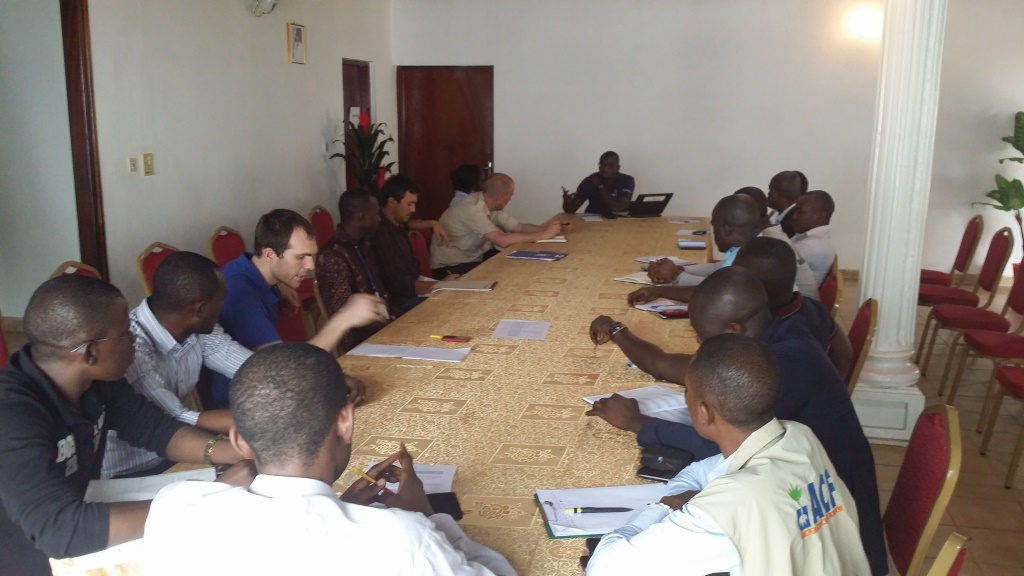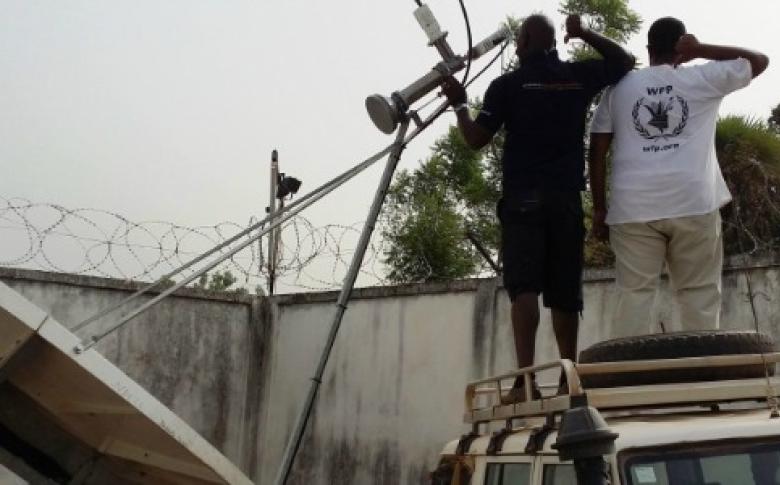
Cooperating for Critical Services in C.A.R.

Nearly two years since the Central Africa Republic (C.A.R.) was plunged into a cycle of escalating violence, the security situation remains extremely volatile. Ongoing attacks against civilians and humanitarian workers combined with logistics constraints and a severe shortage of funding continue to impede response operations.
The Emergency Telecommunications Cluster (ETC) was activated in December 2013 to enhance security telecommunications in the capital, Bangui, as well as support establishment of ETC services in seven common operating areas. ETC services include Internet connectivity, security telecommunications (HF/VHF), radio training and basic ICT helpdesk. Coordination and radio programming services are also being provided in Bangui. Despite the limited international attention and low visibility of the protection crisis, through its network of partners ETC C.A.R. is providing shared internet connectivity and radio communications services at all eight sites across the country.
Using ETC services in C.A.R.? Take the ETC User Feedback Survey in French or in English.

The ETC is working in close collaboration with a number of humanitarian organisations across the country to enable full provision of essential communications services, including: UN Children's Fund (UNICEF) in Kaga-Bandoro and Bossangoa, WFP in N’Délé, Bangui, Bouar and Bambari, UN Office for the Coordination of Humanitarian Affairs (OCHA) in Paoua and UN High Commissioner for Refugees (UNHCR) in Zemio.
“C.A.R. is one of the most difficult contexts for the ETC right now,” says Ekue Ayih, WFP FITTEST deployed as ETC Coordinator in C.A.R. “All of the challenges that we as a cluster face globally, including security, funding and partnerships, are part of our day-to-day operations here.”
“And as more and more emergencies strike across the world, C.A.R. becomes more and more forgotten.”
Despite positive interagency developments, the operation in C.A.R. continues to face challenges. This volatile security situation translates into access constraints as well as logistical problems. Like all operations today, funding is a major challenge for the entire humanitarian response effort in C.A.R.
ETC member, NetHope, has received funding from USAID for an NGO Communication Improvement Program. The project aims to enhance the communications capacity, and thereby security, for humanitarian organizations in six locations across the country. The project is expected to start in September 2015.
The security situation is currently calm, albeit unpredictable. Humanitarian partners continue to collaborate to provide essential communications services in this challenging operation.